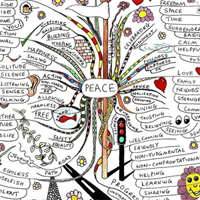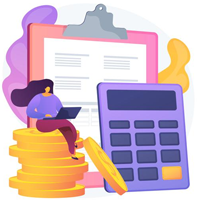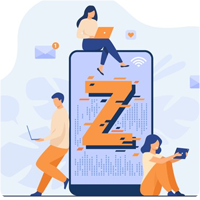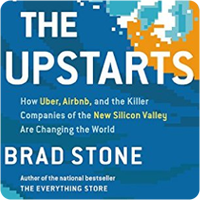Het arrangement Gig Economy v456 is gemaakt met Wikiwijs van Kennisnet. Wikiwijs is hét onderwijsplatform waar je leermiddelen zoekt, maakt en deelt.
- Auteur
- Laatst gewijzigd
- 28-11-2025 12:05:57
- Licentie
-
Dit lesmateriaal is gepubliceerd onder de Creative Commons Naamsvermelding-GelijkDelen 4.0 Internationale licentie. Dit houdt in dat je onder de voorwaarde van naamsvermelding en publicatie onder dezelfde licentie vrij bent om:
- het werk te delen - te kopiëren, te verspreiden en door te geven via elk medium of bestandsformaat
- het werk te bewerken - te remixen, te veranderen en afgeleide werken te maken
- voor alle doeleinden, inclusief commerciële doeleinden.
Meer informatie over de CC Naamsvermelding-GelijkDelen 4.0 Internationale licentie.
Het thema 'Gig Economy' (v456) is ontwikkeld door auteurs en medewerkers van StudioVO. Fair Use In de Stercollecties van StudioVO wordt gebruik gemaakt van beeld- en filmmateriaal dat beschikbaar is op internet. Bij het gebruik zijn we uitgegaan van fair use. Meer informatie: Fair use Mocht u vragen/opmerkingen hebben, neem dan contact op via de helpdesk VO-content.
Aanvullende informatie over dit lesmateriaal
Van dit lesmateriaal is de volgende aanvullende informatie beschikbaar:
- Toelichting
- Dit thema valt onder de arrangeerbare leerlijn van de Stercollectie voor Engels voor vwo, leerjaar 4, 5 en 6. Dit is thema: 'Gig Economy'. Dit thema omvat de volgende volgende onderwerpen: - What is Gig Economy? - Growing up in the Gig Economy - The Upstarts De grammaticaopdrachten gaan over inversions en future tense.
- Leerniveau
- VWO 6; VWO 4; VWO 5;
- Leerinhoud en doelen
- Engels;
- Eindgebruiker
- leerling/student
- Moeilijkheidsgraad
- gemiddeld
- Studiebelasting
- 16 uur 0 minuten
- Trefwoorden
- arrangeerbaar, engels, future tense, gig economy, growing up in the gig economy, inversions, stercollectie, the upstarts, v456, what is gig economy?
Gebruikte Wikiwijs Arrangementen
VO-content - Gereedschapskist. (2019).
Gereedschapskist activerende werkvormen
https://maken.wikiwijs.nl/105906/Gereedschapskist_activerende_werkvormen
VO-content Engels. (2020).
Growing up in the Gig Economy v456
https://maken.wikiwijs.nl/165206/Growing_up_in_the_Gig_Economy_v456
VO-content Engels. (2020).
What is Gig Economy? v456

 In this theme we are looking at The Gig Economy.
In this theme we are looking at The Gig Economy. What do you need to know?
What do you need to know?


 In this first section we look at what the sharing economy, or gig economy as it’s also called, really means. We’ll take a look at why the emphasis is on sharing, and what it is that people are sharing.
In this first section we look at what the sharing economy, or gig economy as it’s also called, really means. We’ll take a look at why the emphasis is on sharing, and what it is that people are sharing.


 What do you think so far about the Sharing Economy?
What do you think so far about the Sharing Economy? In Step 2 you watched a video that presented the Sharing Economy as a vibrant 21st century development.
In Step 2 you watched a video that presented the Sharing Economy as a vibrant 21st century development. What is the 'gig' economy?
What is the 'gig' economy?
 Let's look at ...inversions.
Let's look at ...inversions.
 With your partner, you are going to create a new sharing economy app.
With your partner, you are going to create a new sharing economy app. What have you learnt in this period?
What have you learnt in this period? Many people believe that you, Gen Z will be more prepared for the future work environment than generations before you. What do you think? Do you think that that’s true? Do you feel prepared for the world of work? Or not? Why?
Many people believe that you, Gen Z will be more prepared for the future work environment than generations before you. What do you think? Do you think that that’s true? Do you feel prepared for the world of work? Or not? Why?
 What different ways of working are there?
What different ways of working are there? How Teens Must Adapt To Growing Up In The Gig Economy
How Teens Must Adapt To Growing Up In The Gig Economy How Teens Must Adapt To Growing Up In The Gig Economy
How Teens Must Adapt To Growing Up In The Gig Economy The author, in the article step 2, says that he believes that Gen Z has the upper hand.
The author, in the article step 2, says that he believes that Gen Z has the upper hand. 
 Which apps and websites do you and your family use when you go on holiday?
Which apps and websites do you and your family use when you go on holiday? Interview questions and answers
Interview questions and answers So far we’ve been talking about the Gig Economy. But it’s also sometimes called The Sharing Economy. How much sharing actually happens? And why has this term helped a lot of companies? Read on and find out.
So far we’ve been talking about the Gig Economy. But it’s also sometimes called The Sharing Economy. How much sharing actually happens? And why has this term helped a lot of companies? Read on and find out.







 Brad Stone: 'We should watch Uber and Airbnb closely'
Brad Stone: 'We should watch Uber and Airbnb closely' You are going to imagine that your class is going to have a debate.
You are going to imagine that your class is going to have a debate.
 If your school participates in VO-content, you can practice with the English practice program 'Oefenprogramma Engels'.
If your school participates in VO-content, you can practice with the English practice program 'Oefenprogramma Engels'. At the end of each lesson you answered evaluation questions.
At the end of each lesson you answered evaluation questions.